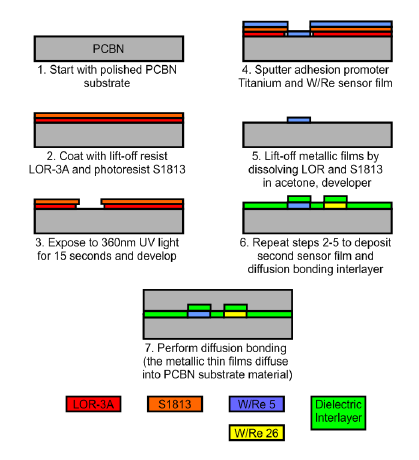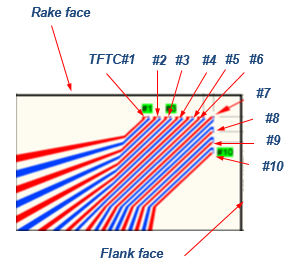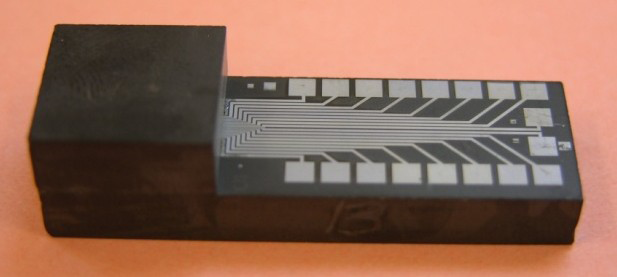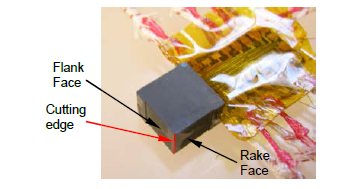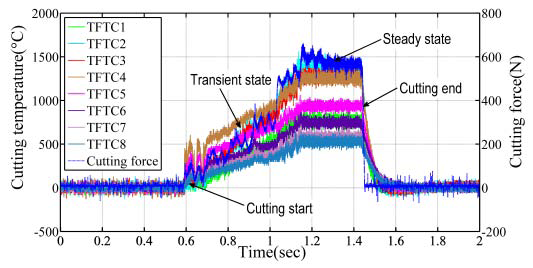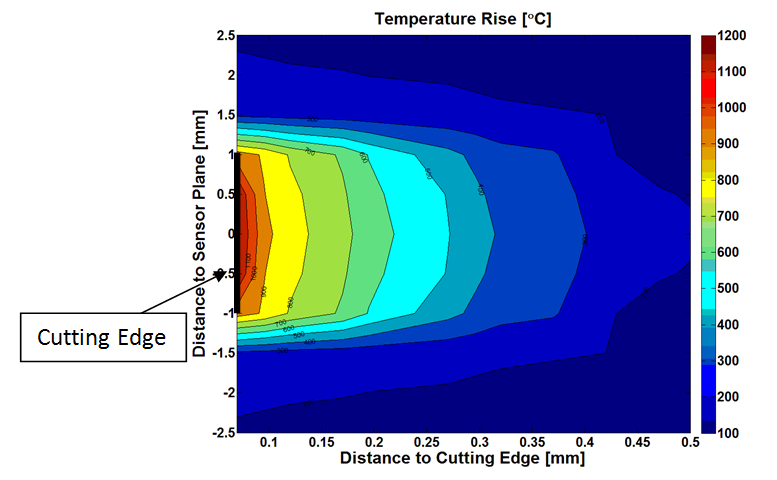Motivation
Polycrystalline cubic boron nitride (PCBN), second in hardness only to diamond, has been almost exclusively used as a cutting tool material in hard machining. Cubic boron nitride is thermally stable, does not react with iron and is an ideal tool material for almost any workpiece material. Thermo-mechanical phenomena, especially at the micro/nano scales, at and near the PCBN tool-work interface are extremely complex. However, current sensors that are used in tools are normally large in size and are either attached to the surface where they might be far from the critical locations to avoid interference with the operation of the tool, or destructively inserted through appropriate channels in the tools, making it difficult to reliably provide measurements with a high spatial and temporal resolution at critical locations at and immediately near the tool-work interface. Therefore, the objective of this research is to develop micro/nano sensor arrays embedded into PCBN tools, with the aim of revolutionizing the understanding of process physics and in-situ operation control, enabling manufacturing engineers to optimize tool design and effectively enhance product quality.
Description
This collaborative research between AMPL and Prof. Xiaochun Li's group at UW-Madison (now at UCLA) seeks to significantly advance the fundamental knowledge in embedding of thin film thermo-mechanical sensors and sensor arrays (e.g., micro/nano high temperature thermocouples and strain gauges) into PCBN tooling, and to provide an unprecedented capability for fundamental studies of material removal processes. PCBN embedded thin film sensor arrays will be used to reliably obtain thermo-mechanical data with a high spatial (from 100 nm up to 50 μm) and high temporal resolution (as fast as 150 ns) at and immediately near the PCBN tool-work interface (e.g., as close as 50 – 75 μm). These critical sensing data will help to benchmark and improve analytical and numerical models to understand the fundamental issues in material removal.
Approach
This project was divided into three inter-related tasks including: (1) design, fabrication, and embedding of micro/nano-sensors in PCBN, (2) sensor characterization and study of the interaction between thin film sensors and PCBN during embedding and simulated testing, and (3) utilizing PCBN tooling with embedded sensors for a fundamental study of the stress- and temperature-field in PCBN tools. This project will advance our fundamental knowledge on embedding micro/nano thin film sensor arrays in PCBN to provide temperature and strain data with unprecedented spatial and temporal resolution at and near the PCBN tool-work interface. It will also lay the foundation for the transfer of this technology into other fields of engineering practice and science.
Photos
Fig. 1 - Fabrication procedures of PCBN embedded sensor.
(a)
(b)
(c)
Fig. 2 - Layout (a) and photograph of the sensor embedded PCBN cutting tool (b)(c)
Fig. 3 - Temperature responses of the embedded sensors during the hard turning process
Fig. 4 - Experimentally determined tool internal temperature field when cutting at 190 m/min and 0.075 mm feed, measured at 100 mm under the rake face
Sponsor
Collaborative GOALI - NSF
